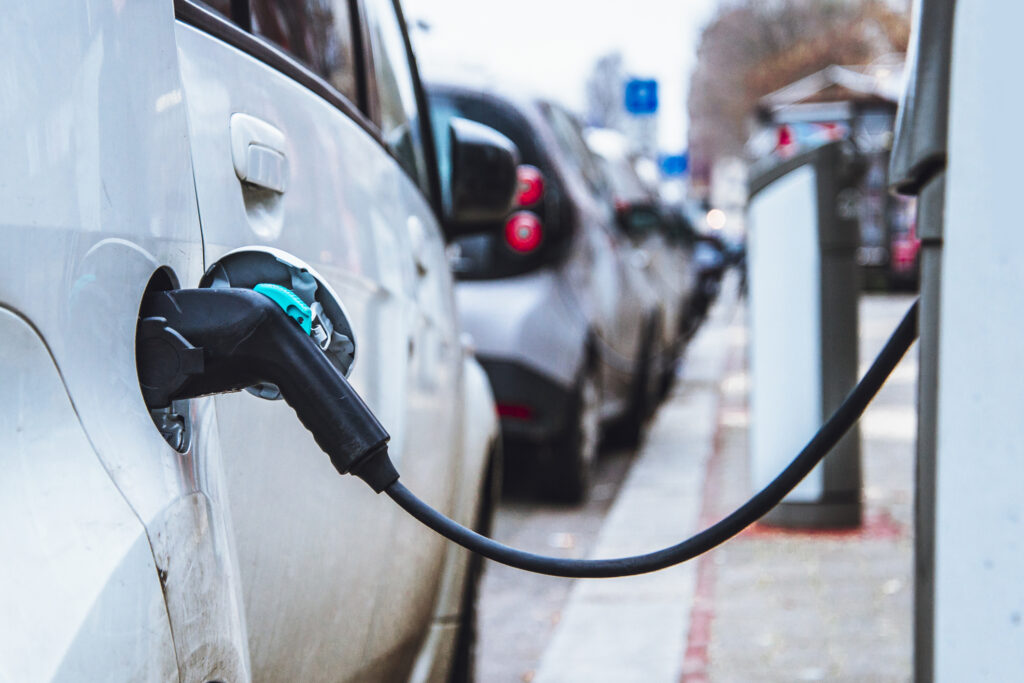The UK Electric Fleets Coalition has called on the government to bring forward the 100% electric vehicle (EV) sales target to 2030.
Made up of a coalition of 21 members, the group includes energy majors such as Centrica, OVO, Iberdrola (ScottishPower), Octopus, ENGIE and more, who collectively operate over 400,000 cars and vans in the UK.
In a new policy document, the coalition highlights that three out of five new vehicles go into the fleet market before entering the second hand market three to five years down the line. Already there is a major push from businesses to decarbonise their fleets, and this should be capitalised on by the government bringing forwards the ban on sales of new internal combustion engine (ICE) vehicles to 2030.
The UK Electric Fleets Coalition is run by the non-profit the Climate Group, in partnership with founding member, BT Group. As part of the Climate Group’s EV100 initiative 77 members have already committed to switching more than 4.5 million vehicles to zero emission, along with installing EV charging at over 3,000 company locations, by 2030.
The policy document goes on to detail how the government could stimulate supply by introducing a zero-emission vehicle mandate that would require vehicle manufacturers to produce an annually increasing percentage of zero-emission vehicles.
This could help secure jobs, with 89% of jobs and value in the UK’s automotive sector either being already invested in or directly transferable to EV production. With stronger policy, the government could help boost employment in the sector from 170,000 today to 220,000 by 2040.
Grants for EVs and charging points should be extended through to at least 2022, and incentives for second hand EVs should be brought in such as those in Norway.
Grid infrastructure will be key to facilitating the rollout, the policy document continues, calling on electricity system and distribution network operators (DNOs) to pursue flexibility first approaches that will allow EVs to benefit the energy network. A collaborative approach between DNOs, Ofgem and businesses could help drive the development of an electricity system fit for the future.
This will help with ensuring there is seamless access to charging infrastructure across the UK. More collaboration across local authorities and devolved administrations to make planning and funding charging infrastructure, as well as cutting red tape and bringing in a ‘presumption of approval’ for EV charging on leased properties, will further help this.
Finally, interoperability at charge points will be needed to truly provide universal coverage for EV changing throughout the UK.
The UK Electric Fleets Coalition suggest that EVs, charging, grid infrastructure and electric commercial vehicles should form a major pillar in the UK’s push to decarbonise, with transport representing the largest source of emissions. There should be a commitment to invest 3% of GDP in R&D to help develop the technology and systems that would facilitate a transition to electric.
Helen Clarkson, CEO of the The Climate Group said: “We need to build back better from the COVID-19 crisis as we look ahead to next year’s COP26 climate summit. Scaling up EV manufacturing and the nationwide charge point network are both huge opportunities for jobs and growth in the UK.
“Businesses are making the switch themselves through our EV100 initiative and now they are coming together with a clear message to government: match our ambition and help us move to clean electric transport.”
Currently, the government is set to bring in a ban on the sale of new ICE vehicles by 2035, having been brought forwards from 2040. But many, including the Committee on Climate Change has suggested that this should be done even earlier, suggesting 2032 as the latest date.
Clive Selley, CEO of Openreach – part of founding partner BP – said: “With the country’s second largest fleet of vans, I want Openreach to play a leading role in the UK’s transition to low carbon vehicles.
“But there are still some major hurdles to overcome. For example, the kinds of vehicles, scale of manufacturing, supply-chains and infrastructure needed to electrify large fleets like ours simply doesn’t exist today. So, we need government support to make the transition faster and fuller, and the commitment to maintaining plug-in grants is a welcome first step.”
Companies in the UK Electric Fleets Coalition have been increasingly pursuing electrification, with Centrica’s British Gas putting in the largest ever commercial order for battery EVs in the UK ever just last week.
OVO has announced that its fleet will be entirely electric by 2030, and SSE committed to making fleet EVs ‘the new normal’ by 2030. Whilst Octopus Electric Vehicles has launched a bundle for fleet operators to assist fleet managers and businesses making the switch to EVs.
The UK Electric Fleets Alliance was launched in June to advocate for transport electrification.





